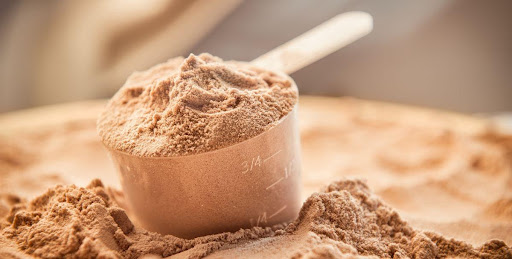The Benefits of Whey Protein
When it comes to fitness and nutrition, one of the most popular and effective supplements available today is whey protein. In this article, we will explore the numerous benefits of whey protein and how it can contribute to your overall health and fitness goals.
Enhances Muscle Growth and Repair
Whey protein is known for its high biological value, which means it contains all the essential amino acids needed by our bodies. These amino acids are the building blocks of protein, and they play a crucial role in muscle growth and repair. By consuming whey protein, you provide your muscles with the necessary nutrients to recover and grow after intense workouts.
Boosts Weight Loss
If you are looking to shed a few pounds, whey protein can be a valuable addition to your diet. Studies have shown that whey protein can help increase satiety, meaning it keeps you feeling full for longer periods. This can prevent overeating and snacking between meals, ultimately aiding in weight loss efforts.
Supports a Healthy Immune System
Whey protein contains immunoglobulins, which are antibodies that help strengthen our immune system. These antibodies play a vital role in fighting off infections and diseases. By incorporating whey protein into your diet, you can give your immune system an extra boost and improve your overall health.
Provides Essential Nutrients
In addition to being an excellent source of protein, whey protein also contains essential nutrients such as calcium, magnesium, and vitamin B12. These nutrients are essential for maintaining healthy bones, supporting energy production, and promoting optimal brain function.
Improves Athletic Performance
Many athletes and fitness enthusiasts rely on whey protein to enhance their performance. The amino acids present in whey protein help improve muscle strength, endurance, and recovery. By including whey protein in your pre or post-workout routine, you can maximize your athletic potential and achieve better results.

Whey protein offers a wide range of benefits for individuals looking to improve their fitness and overall well-being. From supporting muscle growth and repair to aiding in weight loss and boosting the immune system, whey protein is a versatile and effective supplement. By incorporating whey protein into your diet and fitness routine, you can take significant steps towards achieving your health and fitness goals.
Frequently Asked Questions about the Benefits of Whey Protein
Q1: What is whey protein?
A1: Whey protein is a high-quality protein derived from milk during the cheese-making process.
Q2: What are the benefits of whey protein?
A2: Whey protein offers numerous benefits, including muscle growth and recovery, weight management, improved immune function, and increased satiety.
Q3: Is whey protein suitable for vegetarians?
A3: Whey protein is derived from milk, so it is not suitable for strict vegetarians. However, there are vegetarian alternatives available, such as plant-based protein powders.
Q4: Can whey protein help with weight loss?
A4: Yes, whey protein can aid in weight loss by promoting satiety, increasing metabolism, and preserving lean muscle mass.
Q5: How does whey protein benefit muscle growth?
A5: Whey protein provides essential amino acids that are quickly absorbed by the body, promoting muscle protein synthesis and aiding in muscle recovery and growth.
Q6: Is whey protein safe for consumption?
A6: Whey protein is generally safe for most individuals when consumed in moderation. However, it is always recommended to consult with a healthcare professional before starting any new dietary supplement.
Q7: Can whey protein help in reducing muscle soreness?
A7: Yes, whey protein has been shown to reduce muscle soreness and aid in post-exercise recovery due to its high amino acid content.
Q8: Are there any side effects of whey protein?
A8: While whey protein is generally safe, some individuals may experience digestive issues such as bloating, gas, or cramps. It is important to start with a small dosage and gradually increase it to assess tolerance.
Q9: Can whey protein be used as a meal replacement?
A9: While whey protein can be a convenient and nutritious option, it is not recommended to replace whole meals. It is best used as a supplement to support a balanced diet.
Q10: Is whey protein suitable for lactose-intolerant individuals?
A10: Whey protein isolate, which contains minimal lactose, is often well-tolerated by lactose-intolerant individuals. However, it is advisable to consult with a healthcare professional before consuming whey protein if you have lactose intolerance.




